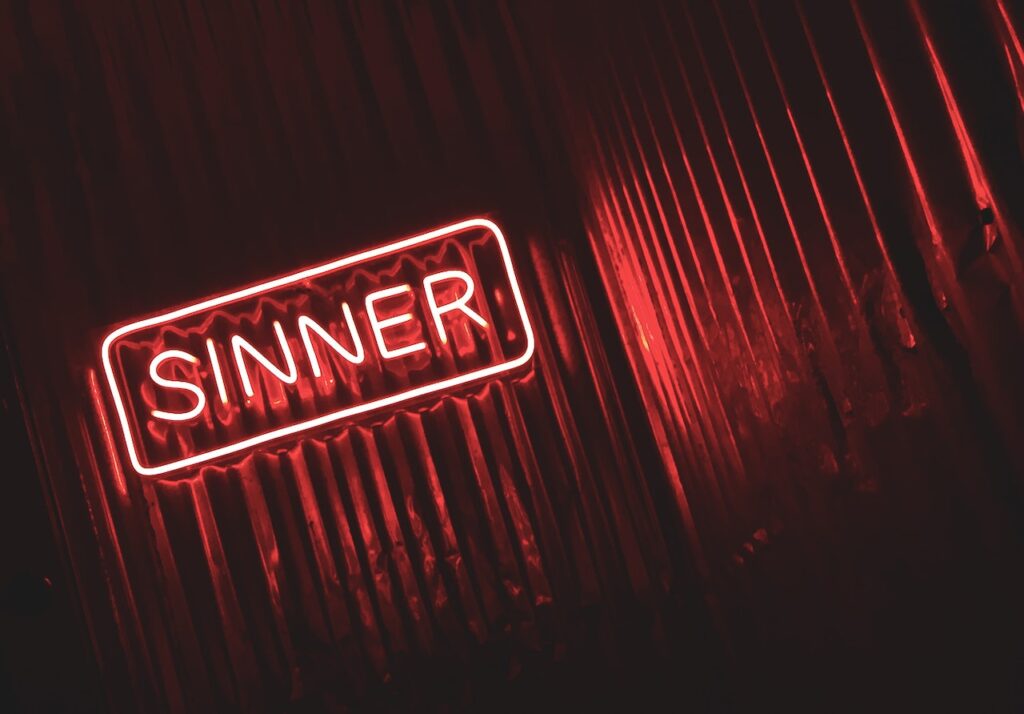
To prologue or not to prologue? That is the question. Does our story actually need one, or are we cool to just dive in? Great question. Prologues can be tricky. The problem with the prologue is it has kind of gotten a bad rap over the years with agents and editors. They generally hate them.
Why?
In my opinion, it is because far too many writers don’t use prologues properly and that, in itself, has created its own problem. Because of the steady misuse of prologues, many readers skip them.
Thus, the question of whether or not the prologue is even considered the beginning of your novel can become a gray area if readers just thumb pages until they see Chapter One.
***Critical point here. SOME GENRES use prologues as a staple and readers won’t skip them. This said, we still need to make sure we understand the purpose of a prologue so we’re using this literary device the way it was intended. And if we aren’t, well…
We gotta know the rules to break the rules and all that jazz 😉 .
So without further ado…
Prologue Sin #1
If our prologue is really just a vehicle for massive information dump…

When I teach or consult, I often recommend writers free-write a background. Just get it all down. This helps get all of that precious backstory out of our system.
This is a useful tactic. First, it can help us see if our characters are psychologically dimensional. Are they too perfect? Do they have story-worthy problems, issues, inner demons, unfinished business? Free-writing can also provide us with a feel for the characters’ subconscious motivations, which will help later in plotting (e.g. love, revenge, acceptance).
I have a little formula for plot.
Background gives us:
Motivations –> Goals–> a Vague/Dumb Plan–> a Better Plan–> the Solution/Final Confrontation–> Resolution/ Arc
A bit of free-writing can help us get an honest look at our ideas. Often, an idea that piques our interest is merely clever, but might not be robust enough for a novel. So make it a short story or rework it and add some meat.
We can also see what details are salient to the plot versus which ones we can keep to ourselves. This helps us better fold the key details into the plotting process so that this vital information can be blended expertly into the story real-time.
Many new writers bungle the prologue because they lack a system that allows them to discern essential details or keep track of important background details. This makes for clumsy writing, namely a giant “fish head” labeled prologue.
What do we do with fish heads? We cut them off and throw them away. If free-writing isn’t for you? No problem. The internet has all kinds of options. The point is simply to WRITE and be able to organize story-worthy information.
Prologue Sin #2
If our prologue really has nothing to do with the main story.
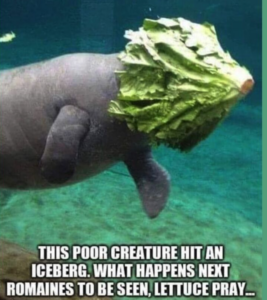
This point ties into the earlier sin. Do this. Cut off the prologue. Now ask, “Has this integrally affected the story?” If it hasn’t, it’s likely a fish head masquerading as a prologue.
Prologue Sin #3
If our prologue’s sole purpose is to “hook” the reader.
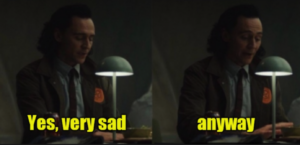
If readers have a bad tendency to skip past prologues, and the only point of our prologue is to hook the reader, then we have just effectively shot ourselves in the foot.
We need a great hook for the prologue, but then we also need another hook in Chapter One. If we can merely move the prologue to Chapter One, and it not upset the flow of the story, then that is a lot of pressure off our shoulders. There’s no need to be “doubly-interesting” if it’s unnecessary.
Prologue Sin #4
If our prologue is overly long…
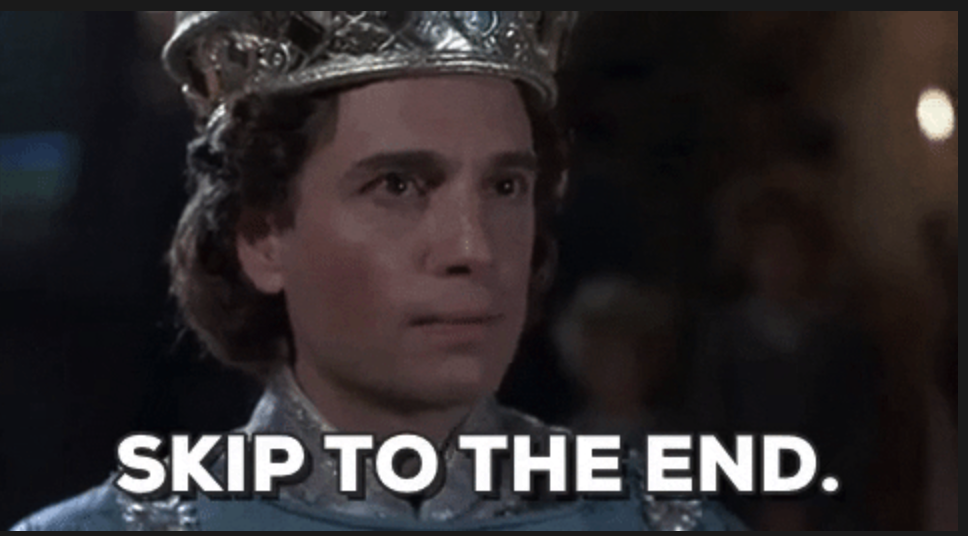
Prologues need to be short and sweet and to the point. Get too long and that is a warning flag that we might not be starting our story in the correct place. Trust the reader. They’re smart and the LOVE secrets, so be a secret-keeper!
Prologue Sin #5
If our prologue is written in a totally different style and voice that is never tied back into the main story…

Pretty self-explanatory…and acted out by sea urchins. AWWWWWW!
Prologue Sin #6
If our prologue is über-condensed world-building…
World-building is generally one of those things, like backstory, that can and should be folded into the narrative. Sometimes it might be necessary to do a little world-building, but think “floating words in Star Wars.”
The yellow floating words that drift off into space help the reader get grounded in the larger picture before the story begins. But note the floating words are not super-detailed Tolkien world-building. They are simple and, above all, brief.
Prologue Sin #7
If your prologue is there solely to “set the mood…”
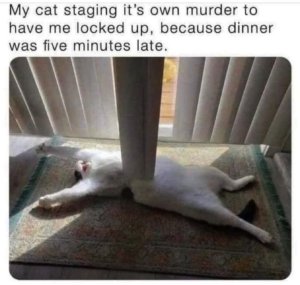
We have to set the mood in Chapter One anyway. So, like the hook, why do it twice if we don’t have to?
Prologue Virtues
Now that we have discussed the Seven Deadly Sins of Prologues, you might be asking yourself, “So when is it okay to use a prologue?”
Glad you asked.
Prologue Virtue #1
Prologues can be used to resolve a time gap with information critical to the story.
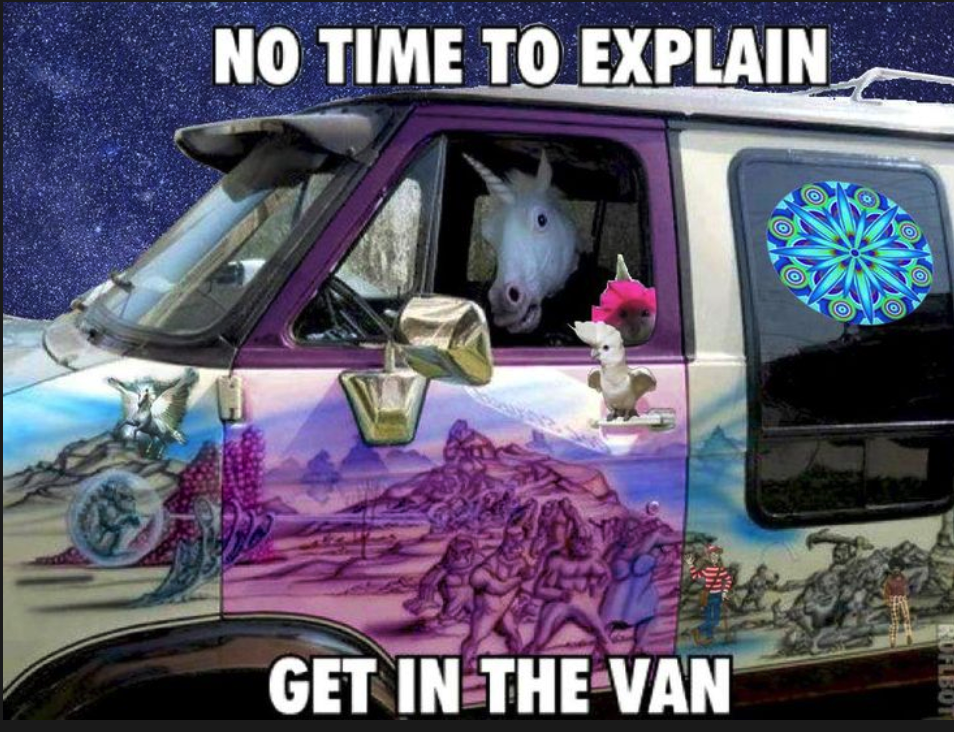
Genre will have a lot to do with whether one uses a prologue or not. Thrillers generally employ prologues because what our hero is up against may be an old enemy.
In James Rollins’s The Doomsday Key the prologue introduces the “adversary” Sigma will face in the book. Two monks come upon a village where every person has literally starved to death when there is more than an abundance of food.
Many centuries pass and the very thing that laid waste to that small village is now once more a threat. But this (the prologue) gives the reader a feel for the fact that this is an old adversary. The prologue also paints a gripping picture of what this “adversary” can do if unleashed once more.
The prologue allows the reader to pass centuries of time without getting a brain cramp. Prologue is set in medieval times. Chapter One is in modern times. Prologue is also pivotal for understanding all that is to follow.
Prologue Virtue # 2
Prologues can be used if there is a critical element in the backstory relevant to the plot.
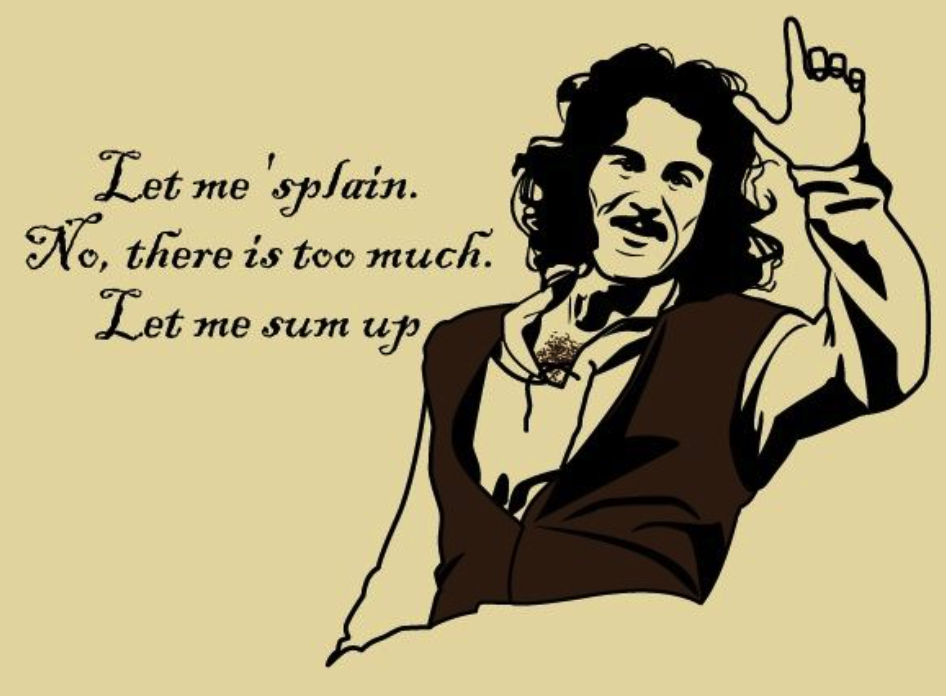
The first Harry Potter book is a good example of a book that could have used a prologue, but didn’t (likely because Rowling knew it would likely get skipped). Therese Walsh in her fabulous blog Once Before A Time Part 2 said this:
J.K. Rowling’s Harry Potter and the Sorcerer’s Stone is told in a close 3rd person POV (Harry’s), but her first chapter is quite different, told when Harry is a baby and switching between omniscient and 3rd person POVs (Mr. Dursley’s and Dumbledore’s).
Rowling may have considered setting this information aside as a prologue because of those different voices and the ten-year lag between it and the next scene, but she didn’t do it. The info contained in those first pages is critical, it helps to set the story up and makes it more easily digested for readers.
And it’s 17 pages long.
Read the rest of AMAZING POST HERE! And, while you’re there, just subscribe to Writer Unboxed. Y’all will thank me later.
Anyway…
This battle is vital for the reader to be able to understand the following events and thus would have been an excellent example of a good prologue. But, Rowling, despite the fact this chapter would have made prime prologue material, still chose to make it Chapter One so the reader would actually read this essential piece of story information.
Food for thought for sure.
Yes, I had Seven Sins and only Two Virtues. So sue me ![]() . That should be a huge hint that there are a lot more reasons to NOT use a prologue than there are to employ one.
. That should be a huge hint that there are a lot more reasons to NOT use a prologue than there are to employ one.
Prologues, when done properly, can be amazing literary devices. Yet, with a clear reader propensity to skip them, then that might at least make us pause before we decide our novel must have one.
We need to make sure we ask ourselves honest questions about the purpose these pages are really serving. Are they an essential component of a larger whole? Or are we using literary Bond-O to patch together a weak plot or undeveloped idea?
A Final Note of Caution

Make sure your prologue is, in fact, a prologue. The prefix pro means earlier than, prior to, or before. Whatever event transpires in our prologue is BEFORE the main story begins. If it isn’t, then that isn’t a prologue and we’re getting into what I call non-linear structure.
Time can be a FANTASTIC literary device when done the right way. It’s fabulous for withholding information, keeping the mystery going and the reader guessing and it is a staple device for creating unforgettable unreliable narrators (Gone Girl, Luckiest Girl Alive, The Green Mile, Fight Club, The Notebook).
***Yes, my reading tastes run the gamut.
Suffice to say, if whatever we’re labeling prologue isn’t BEFORE the core story problem, then we likely have a structure issue.
But, don’t take my word for it. I actually scoured the Internet for some great blogs regarding prologues to help you guys become stronger in your craft.
ADDITIONAL RESOURCES!
I get these are oldies but goodies, but these are still some of the best articles on the topic.
Once Before a Time: Prologues Part 1 by Therese Walsh
Once Before a Time Part 2 by Therese Walsh (mentioning again)
Agent Nathan Bransford offers his opinion as does literary agent Kristin Nelson
Carol Benedict’s blog Story Elements: Using a Prologue
To Prologue or Not To Prologue by Holly Jennings
If after all of this information, you decide you must have a prologue because all the coolest kids have one, then at least do a bit of research.
So if you must write a prologue, then write one that will blow a reader away.
I LOVE hearing from you!
What are some of the questions, concerns, troubles you guys have had with prologues? Which ones worked? Which ones bombed? What are your solutions or suggestions?
SIGN UP! NEW UPCOMING CLASSES!
***REMEMBER all classes INCLUDE a FREE RECORDING with purchase!
USA Today Best-Selling Author, Cait Reynolds will be teaching…
World Building
***All Classes have a $25 discount until 9/16/22 using New25
***Make sure to look at the BUNDLES if you want more than ONE!
Gaskets & Gaiters: Steampunk & Gaslamp World Building
FRIDAY, SEPTEMBER 23, 2022 (7:00-9:00 EST)
Lasers, Dragons, & Swords! World-Building for Fantasy & Science Fiction
September 27, 2022 (7:00 P.M.-9:00 P.M EST)
Backstory: The Yarn Behind the Book
Friday, September 30, 2022 (7:00 pm – 9:00 pm EST)
The Story Bible: Keeping Track of the Voices in Your Head…and More
Friday, October 7, 2022, (7:00 p.m. — 9:00 p.m. EST)
BUNDLE! World in a Box: Playing God Has Perks
THREE CLASSES, ONE LOW PRICE!
BETTER BUNDLE! World in a Box PLATINUM
FOUR CLASSES, ONE LOW PRICE!
ROMANCE
***All classes have a $25 discount using New25 before 10/4/22
***AGAIN, check out the BUNDLES if you want more than ONE!
Bad Boys: Can’t Live with Them, Can’t Write Without Them
TUESDAY, OCTOBER 11th (7:00-9:00 PM EST)
Tease: Keep the Romance Going…All Book Long
FRIDAY, OCTOBER 14th (7:00-9:00 PM EST)
Baby, It’s Hot in Here! Writing High Heat Romance
FRIDAY, OCTOBER 21st (7:00 PM to 9:00 PM EST)
BUNDLE! Double Dare TWO Romance classes, ONE great price!
Includes Bad Boys and Tease
BUNDLE! Triple Threat! THREE classes, ONE great price!
Includes Bad Boys, Tease, and High-Heat Romance
Writing Business
Burb Writing BITES (But Doesn’t Have To)
ON DEMAND OPTIONS from ME!
ON DEMAND: Bring on the Binge: How to Plot a Series
SIGN UP HERE. Use New20 for $20 off
ON DEMAND: The Art of Character: Writing Characters for a SERIES
SIGN UP HERE Use New20 for $20 off
Spilling the Tea: Blogging for Authors ON DEMAND
Sign up HERE and Use New25 for $25 off








10 comments
Skip to comment form
Masterful analysis (and some of your best meme punctuations, and that’s saying something).
A prologue should be there for *contrast.* It’s when the best place to begin the main line of the story provides a solid Chapter One, but all that works even better with a glimpse of something else first, and the contrast between the two is so useful that it’s worth making it that all-important first thing readers see. It’s when we simply can’t understand the big celebrity hero unless we first glimpse him waking up hung over — when a slow-build horror story needs a glimpse of the monster eating someone to promise where it’s going — when an epic tale really needs to open with a chronicler or record to give it that sense of history.
Choosing the true Chapter One is one of the most important skills a writer can have, because it’s always the one we get to show off first. A prologue means a chance to do it twice in different ways, and show off the synergy between them too, and it’s glorious… When. It. Works.
As always, this is a fabulous post, Kristen! Thank you for sharing your expertise!
Prologues are not used often in genres I write in, but when I was researching a different genre to write (legal thriller), I found they were used about 30% of the time. I read one in a legal thriller by a well known author that gave the entire story away. I knew ‘whodunnit’ and why from the prologue. As I delved into the story and backstory details were given out, my suspicions were entirely confirmed by the time I was 2/3rds of the way through the book. What a waste!
Author
Which is why it is critical to know WHY we use them. What is the purpose? Otherwise we could just be shooting our stories in the foot. Thanks for the comment!
When I started writing, I knew nothing. I’d not done a creative writing degree, done no courses, didn’t know about all the wonderful authors, like yourself, who spend time to help others hone their craft. I just sat before my computer and started writing.
And yes, I wrote a prologue.
This prologue was one that happened several hundred years in the past and explained about the lost magical sword the companions had to find Inthe main story.
I thought this would be a single book. Find sword, find why the prophecy said it would be needed, discover who is the bad guy and kill him.
However, by the time they found the sword, it was already one book.
So, a trilogy, then. Second book had to have a prologue as the first did, I thought, so I wrote one. This book split the companions near the beginning, and followed one half of the group. So a third was needed for the other half. So, as the first two books had prologues, this one needed one, too.
I’m currently on book 4, and in the rewriting phase. I’m struggling with the idea of another prologue for book 5.
Do you think that if the first, or even the first couple of books have a prologue, all subsequent ones need one, too? Must the format be the same for all books in a series?
Oh, and I don’t skip prologues myself. I think that if the author thought one was necessary, he/she must have some information to give that is important to understanding the story.
Great post, Kristen! I landed here by way of Nathan Bransford. He felt you could say his thoughts on prologue better than him.
I agree with you about this. I am one one of those who slides past long prologues. Get to the story! I hear myself saying. As a writer I sometimes use prologue, sometimes not. When I do, I keep it short, only a sentence or two. It’s more like an introduction. In my current just self-published memoir, I tell the reader why I wrote it and why it took so long… fifty years. That second probably wasn’t necessary since most memoirs are many years away from when they happened, but it’s out there now.
Thanks once again.
Author
Nathan is awesome. If it’s short, I usually don’t mind. Just so many are used improperly and it makes my head hurt. BUT that is why I take the time to write these posts! 😀
I usually skip prologues especially a long one. And I actually skipped all of Harry Potter. Until the last book.
What bugs me is an epilogue. I hate them. All they do is sum up or explain what happened. Why doesn’t anyone ever talk about them? And if there’s a prologue, shouldn’t there be an epilogue so the story is neatly bookended?
A good article, Thanks Kristen. I advocate for the “prologue” I have read every single one in each book that contains one. I would suggest that those that skip prologues and epilogues are idiotic simpletons, but I do not wish to be harsh. I would suggest also that when they are eating the meat of the prawn, they may notice that it was contained within a shell. Also, every epilogue and post epilogue, Prelude and Elegy contains the seeds of the tale that entertains us. Why read the book if you wish to ignore the story?
There is a Scots colloquialism. “Numptie” it means someone with the learning ability and general outlook of a “turnip” I suspect that those that avoid Prologues and epilogues wuld be happy being Turnips.
Author
I don’t know about that. I’ve edited more books than I can count over the years and many from new authors who didn’t understand the purpose of the prologue. I had to get them to either adjust it, move it or cut it. In the old days of all books being traditionally published, I could say that at least a skilled editor was overseeing if the device was used correctly or not. With modern publishing? Misuse is much more rampant. But, in that case, I probably (as a reader) would simply skip the entire book.